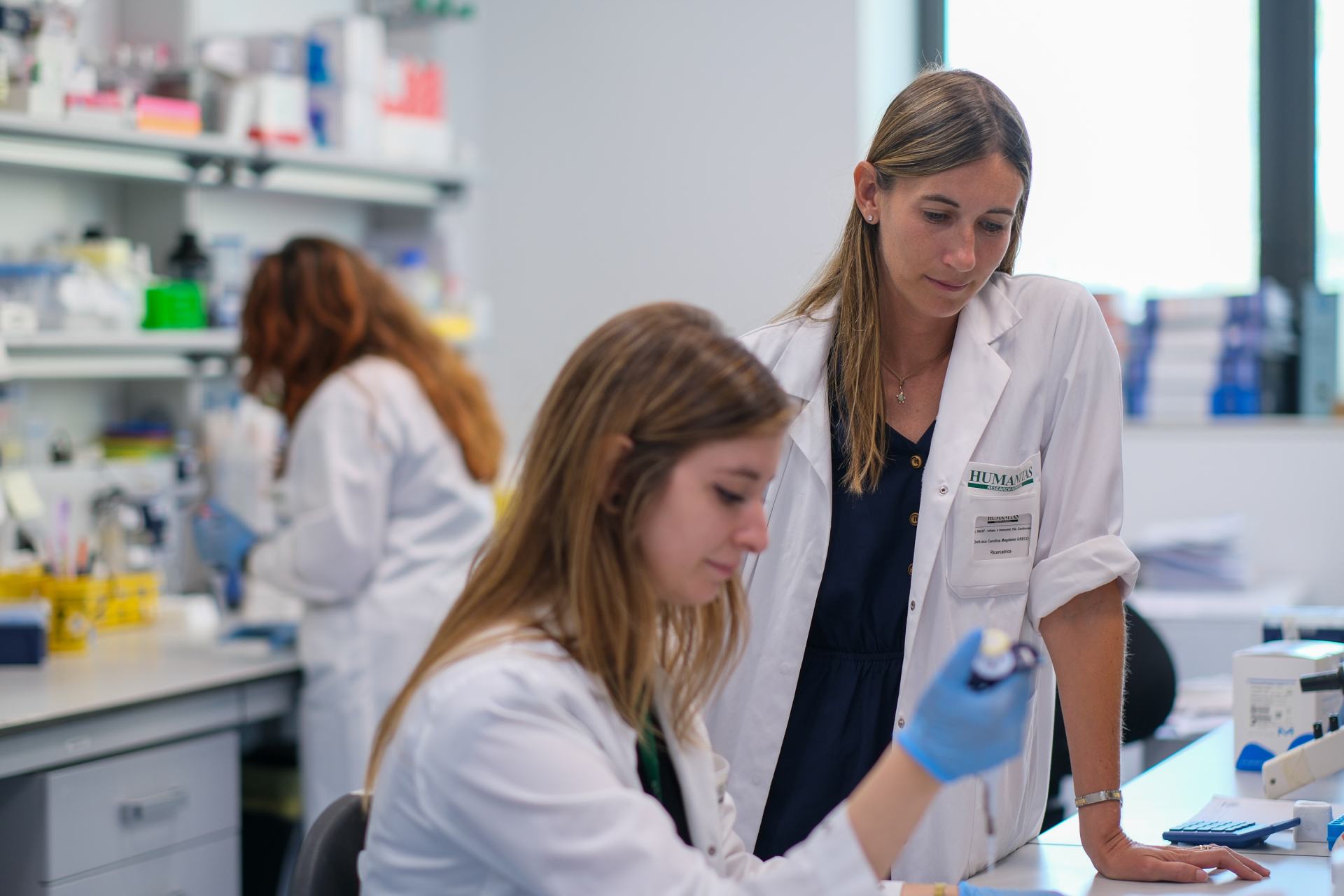Carolina Greco awarded the ERC Starting Grant to study circadian clocks’ role in heart failure

A project led by Humanitas University researcher Carolina Greco, who has been awarded a prestigious ERC Starting Grant of 1.7 million Euros, aims to transform our understanding of the most common heart disease in industrialized countries
Despite being the end result of many cardiovascular diseases and affecting about 60 million people worldwide – over 10% of the Italian population over the age of 65 – heart failure remains a poorly understood disease for which effective therapies are lacking. This is why Carolina Greco, Assistant Professor at Humanitas University and Junior Group Leader of the Circadian Metabolism Laboratory in Humanitas, intends to study it from a completely new perspective.
In heart failure, the heart is unable to pump blood as efficiently as it should. But instead of focusing solely on what happens in the heart, the group led by Carolina Greco will investigate how heart failure modifies the metabolism of the entire body and alters the functioning of the so-called “circadian clocks,” proteins that keep time within cells and maintain synchronization among various organs with the day-night cycle.
What molecules does the failing heart use to communicate with the liver and the skeletal muscle system? How does it change energy consumption in these tissues? Is it possible to alter the course of the disease by targeting metabolism in organs other than the heart?
These are some of the questions that the CODE-HEART project, which has won a 2024 ERC Starting Grant awarded by the European Commission on a highly competitive basis, will seek to answer. It is one of 41 projects funded in Italy in this round, with only 9 in the life sciences area.
“Receiving an ERC grant is much more than recognition; it is an extraordinary opportunity to conduct high-impact frontier science,” says Carolina Greco. “With CODE-HEART, I want to change our understanding of heart failure as a systemic disease that affects the metabolism of the entire body and pave the way for the search for new therapeutic approaches.”
Carolina Greco’s ERC will be the third ERC project currently ongoing in Humanitas: Simona Lodato, Associate Professor at Humanitas University and Group Leader of the Humanitas Neurodevelopment Laboratory, won the ERC Starting Grant in 2021, while Michela Matteoli, Full Professor at Humanitas University and Director of the Humanitas Neuroscience Program, obtained the prestigious ERC Advanced Grant in 2022.
About Carolina Greco
Born in 1986, after earning a PhD in translational medicine from the University of Milano-Bicocca, Carolina Greco spent several years conducting research in the USA, at the Center for Epigenetics and Metabolism of the University of California, Irvine.
In California, working in the lab of Paolo Sassone-Corsi, she specialized in studying the molecular switches that regulate the oscillations of physiological and metabolic parameters over 24 hours within our bodies – the so-called circadian clocks. These proteins keep time within cells and tissues, allowing different organs to carry out their activities synchronously based on the alternation of sunlight over 24 hours.
In 2021 she returned to Italy, joining Humanitas Cardiovascular Program thanks to a Marie Curie Fellowship awarded by the European Commission. Today, she is Assistant Professor at Humanitas University, as well as Junior Group Leader at IRCCS Humanitas Research Hospital, where she leads the Circadian Metabolism Lab.
Thanks to the ERC, Carolina’s lab will be able to accelerate its research on the relationship between circadian clocks, metabolic alterations and cardiovascular diseases, with the aim of paving the way for new preventive, diagnostic, and therapeutic approaches.
What is the ERC?
The ERC, set up by the European Union in 2007, is the premier European funding organization for excellent frontier research. It funds the most brilliant and creative researchers of any nationality and age on a highly competitive basis, to run projects based across Europe.
The ERC offers four core grant schemes: Starting Grants, Consolidator Grants, Advanced Grants and Synergy Grants. With its additional Proof of Concept Grant scheme, the ERC helps grantees to bridge the gap between their pioneering research and early phases of its commercialization.
Since 2007, the ERC has led to the publication of over 200,000 scientific articles and the founding of more than 440 innovative start-ups. Scientists who have received ERC funding have collectively won 14 Nobel Prizes, 7 Fields Medals and 11 Wolf Prizes.